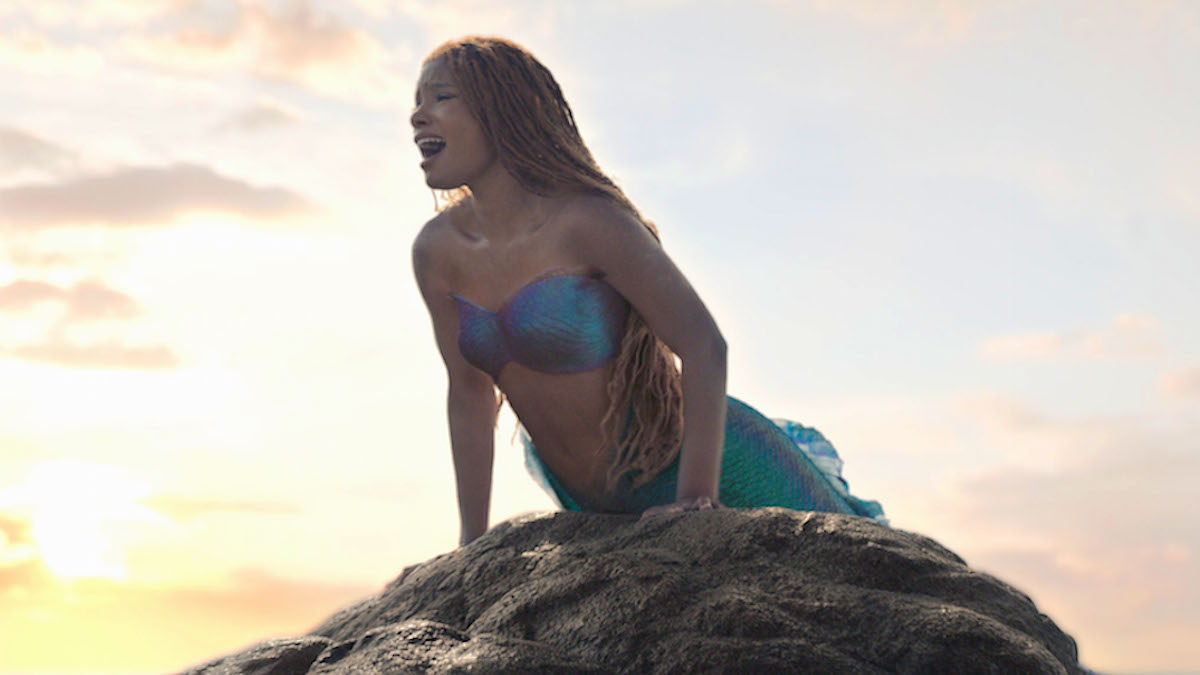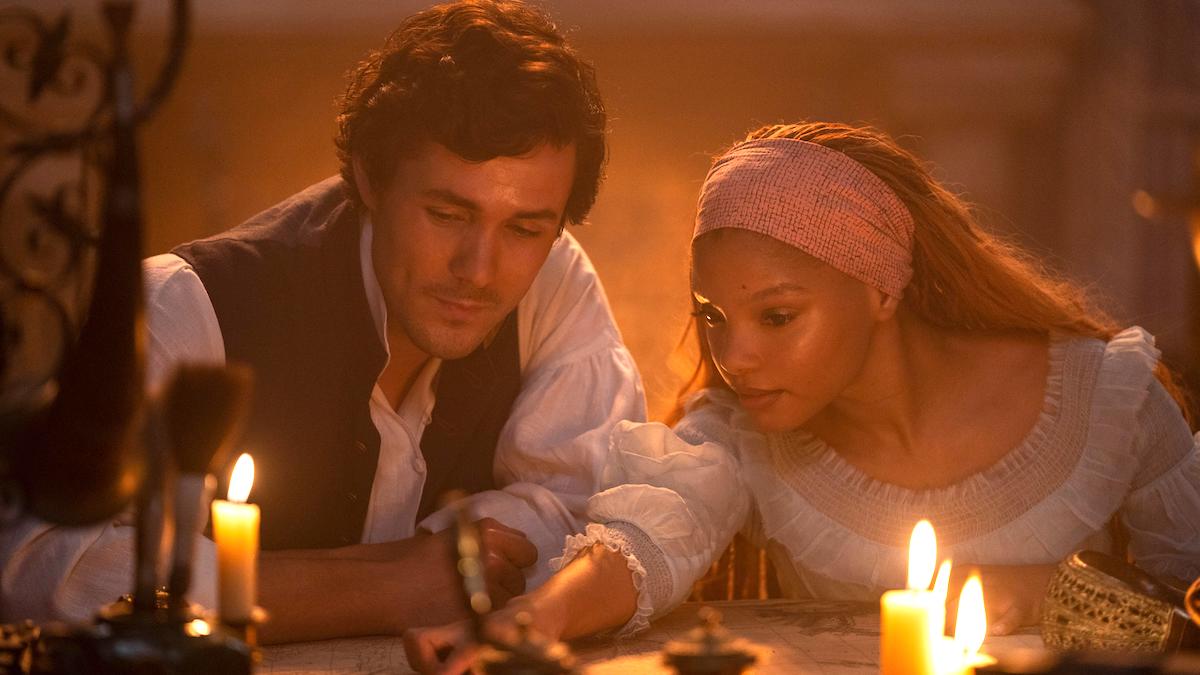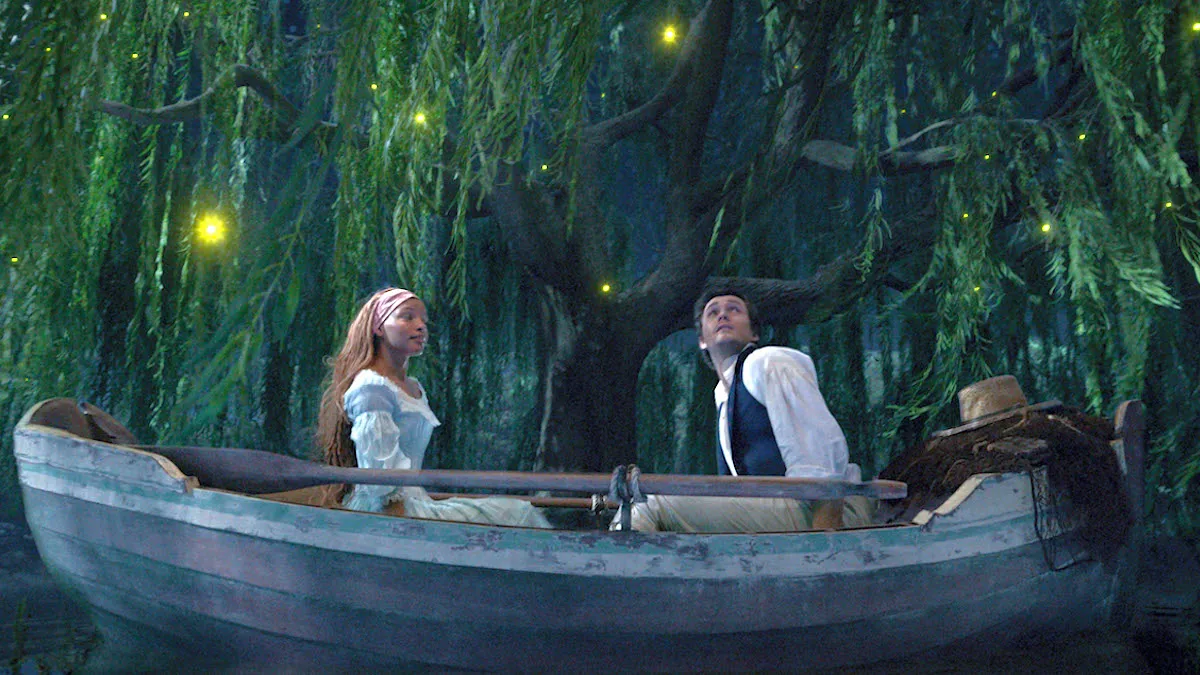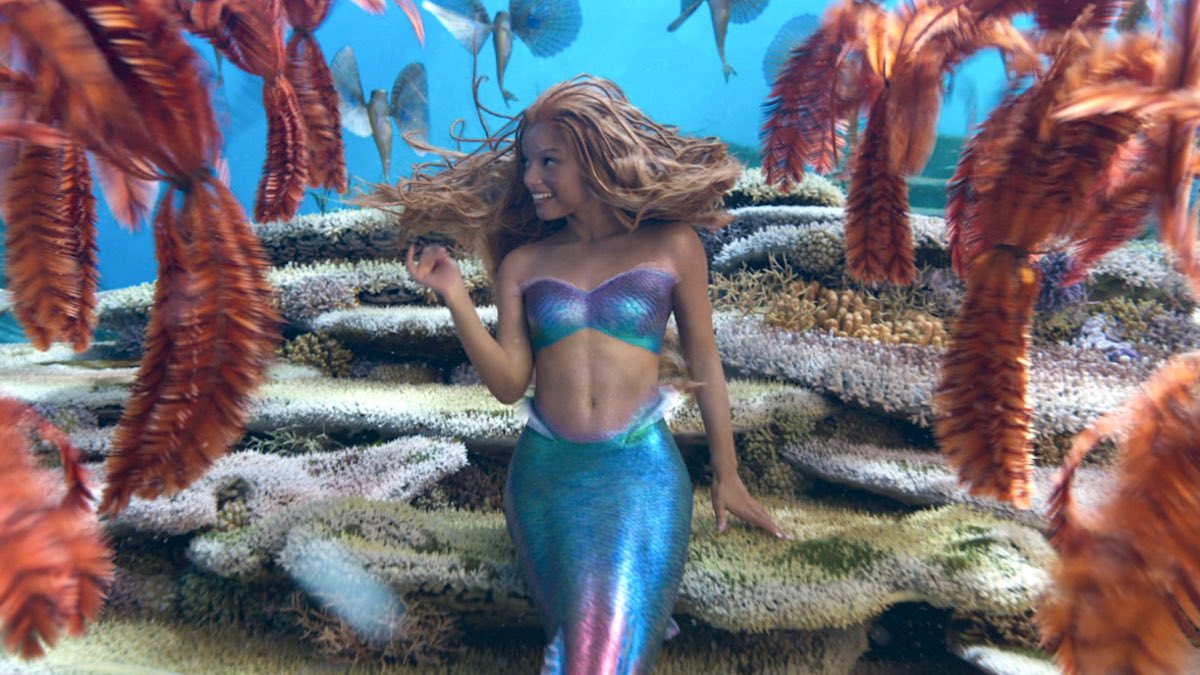Shut It, Naysayers, Halle Bailey’s Ariel Perfectly Balances Nostalgia And Innovation In The Little Mermaid Live-Action Remake
Screengrab via Walt Disney Pictures
Despite all the creative and social challenges of reimagining a beloved classic for a new generation, Disney has found a happy medium to ace The Little Mermaid‘s live-action remake so far. Although directors have exercised their creative liberty and have made a lot of changes, Halley Bailey‘s casting as Ariel sparked debates and surprised Disney fans the most. Simultaneously, it was also applauded as a commendable step towards inclusivity and diverse representation in modern storytelling. Disney has taken a huge stride towards revolutionizing contemporary narratives with The Little Mermaid by successfully balancing nostalgia and creativity. While staying loyal to the original’s magic, Disney has breathed new life into the timeless love story of an ethereal mermaid and a charming prince.
Halle Bailey’s representation of Ariel is a power move towards inclusivity and empowerment

Disney’s other live-action remakes like Mulan and Aladdin have embraced stories that speak to viewers all across the world while celebrating ethnic diversity. While the stepping-away of Ariel from her traditionally white ethnicity raised questions about the authenticity of the remake, fans have praised the reimagining as progressive and inclusive. Videos of many Black girls surfaced online after the release of The Little Mermaid’s trailer, showing how little girls resonated with Ariel’s character and felt happy to see a Disney princess who looks like them. This diverse representation isn’t just empty “political correctness” or “wokism”; it’s absolutely crucial, because it fosters a sense of belonging and encourages young children to accept their identities. Halle Bailey reinforced her aim to help children embrace themselves while speaking to Reuters at the premiere of the film in Los Angeles on May 8,
“My hopes for this film are just for people to take away such love and joy and happiness when they leave and especially for all of the Black and brown little boys and girls to be able to see themselves being represented on such a big scale.”
The critical appreciation Disney has received for its decision to create a Black Ariel might also influence the company’s upcoming remakes if the film performs well. Bailey’s co-star Awkwafina, who voices the character of a seagull named Scuttle, echoed the sentiment, and remarked,
“It’s so important for little girls to see themselves in things, in movies, in representation.”
Disney needs to infuse fresh perspectives in its remakes for the nostalgic lure to work in the first place

The first Disney live-action remake of 101 Dalmatians in 1996 opened the doors for all subsequent remakes with its successful box office performance. Although some fans and critics contend that these retellings give old stories new life, others argue that they lack the originality and allure of their animated counterparts. But despite the mixed reactions to its trend of updating its vintage animated classics, Disney continues to experiment with fresh remakes. The 2019 releases Aladdin and Lion King emerged as audience favorites, but the Dumbo remake from the same year was a financial failure in comparison. What fate awaits the release of The Little Mermaid at the box office is not a tricky question, since controversies and debates boost business in the end.
When examining Disney’s methods more closely, it becomes clear that nostalgia is a potent lure for viewers of its remakes. The company’s current adult target market were children at the time of the release of its original classics, and they look forward to revisiting their memories. Disney typically uses recognizable and iconic scenes in the trailers, such as Ariel saving Prince Eric and her tragic encounter with Ursula, pitching it as a chance for fans to discuss the story and remember the well-known characters.
What does this mean for Disney’s future remakes?

Disney has figured that if it hopes to usher in a new era of imaginative storytelling and maintain the company’s iconic status, it must strike the correct balance between adopting an inventive strategy, and embracing nostalgia. The casting of Halle Bailey as Ariel shows Disney’s commitment to creating a new diverse and inclusive era for the entertainment industry. This decision also stresses the fact that characters must be judged and defined by personalities, rather than their physical appearance alone.
The world is currently going through a revolution where the audience views films through the lens of social correctness. This change demands that many long-standing customs be abandoned, even if it upsets some viewers. Adaptations should allow reinterpretations from fresh viewpoints keeping in mind the changing times. The future is diverse and inclusive. The portrayal of a modernized Ariel who is strong and independent emphasizes her development and agency as a role model for young people. Halle Bailey has worked magic for The Little Mermaid.
About the author

Screengrab via Walt Disney Pictures
Despite all the creative and social challenges of reimagining a beloved classic for a new generation, Disney has found a happy medium to ace The Little Mermaid‘s live-action remake so far. Although directors have exercised their creative liberty and have made a lot of changes, Halley Bailey‘s casting as Ariel sparked debates and surprised Disney fans the most. Simultaneously, it was also applauded as a commendable step towards inclusivity and diverse representation in modern storytelling. Disney has taken a huge stride towards revolutionizing contemporary narratives with The Little Mermaid by successfully balancing nostalgia and creativity. While staying loyal to the original’s magic, Disney has breathed new life into the timeless love story of an ethereal mermaid and a charming prince.
Halle Bailey’s representation of Ariel is a power move towards inclusivity and empowerment

Disney’s other live-action remakes like Mulan and Aladdin have embraced stories that speak to viewers all across the world while celebrating ethnic diversity. While the stepping-away of Ariel from her traditionally white ethnicity raised questions about the authenticity of the remake, fans have praised the reimagining as progressive and inclusive. Videos of many Black girls surfaced online after the release of The Little Mermaid’s trailer, showing how little girls resonated with Ariel’s character and felt happy to see a Disney princess who looks like them. This diverse representation isn’t just empty “political correctness” or “wokism”; it’s absolutely crucial, because it fosters a sense of belonging and encourages young children to accept their identities. Halle Bailey reinforced her aim to help children embrace themselves while speaking to Reuters at the premiere of the film in Los Angeles on May 8,
“My hopes for this film are just for people to take away such love and joy and happiness when they leave and especially for all of the Black and brown little boys and girls to be able to see themselves being represented on such a big scale.”
The critical appreciation Disney has received for its decision to create a Black Ariel might also influence the company’s upcoming remakes if the film performs well. Bailey’s co-star Awkwafina, who voices the character of a seagull named Scuttle, echoed the sentiment, and remarked,
“It’s so important for little girls to see themselves in things, in movies, in representation.”
Disney needs to infuse fresh perspectives in its remakes for the nostalgic lure to work in the first place

The first Disney live-action remake of 101 Dalmatians in 1996 opened the doors for all subsequent remakes with its successful box office performance. Although some fans and critics contend that these retellings give old stories new life, others argue that they lack the originality and allure of their animated counterparts. But despite the mixed reactions to its trend of updating its vintage animated classics, Disney continues to experiment with fresh remakes. The 2019 releases Aladdin and Lion King emerged as audience favorites, but the Dumbo remake from the same year was a financial failure in comparison. What fate awaits the release of The Little Mermaid at the box office is not a tricky question, since controversies and debates boost business in the end.
When examining Disney’s methods more closely, it becomes clear that nostalgia is a potent lure for viewers of its remakes. The company’s current adult target market were children at the time of the release of its original classics, and they look forward to revisiting their memories. Disney typically uses recognizable and iconic scenes in the trailers, such as Ariel saving Prince Eric and her tragic encounter with Ursula, pitching it as a chance for fans to discuss the story and remember the well-known characters.
What does this mean for Disney’s future remakes?

Disney has figured that if it hopes to usher in a new era of imaginative storytelling and maintain the company’s iconic status, it must strike the correct balance between adopting an inventive strategy, and embracing nostalgia. The casting of Halle Bailey as Ariel shows Disney’s commitment to creating a new diverse and inclusive era for the entertainment industry. This decision also stresses the fact that characters must be judged and defined by personalities, rather than their physical appearance alone.
The world is currently going through a revolution where the audience views films through the lens of social correctness. This change demands that many long-standing customs be abandoned, even if it upsets some viewers. Adaptations should allow reinterpretations from fresh viewpoints keeping in mind the changing times. The future is diverse and inclusive. The portrayal of a modernized Ariel who is strong and independent emphasizes her development and agency as a role model for young people. Halle Bailey has worked magic for The Little Mermaid.
